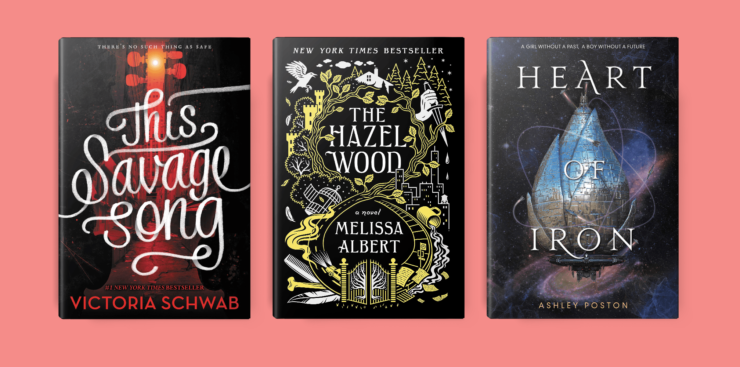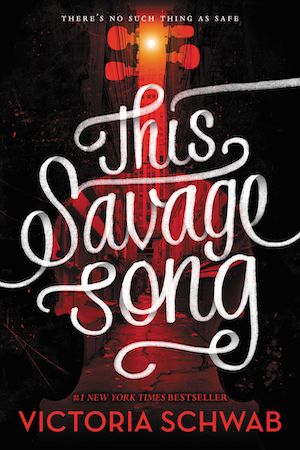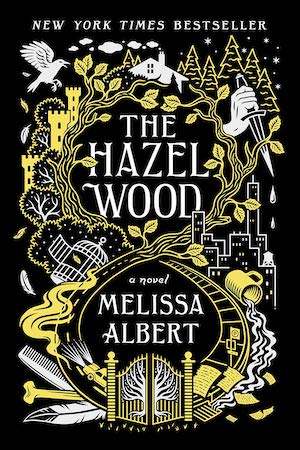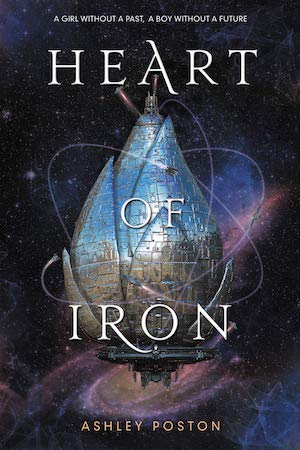One of the most popular questions I get asked in my author life, is “why YA?”
And honestly, it’s one of those tricky questions that’s hard to answer without getting too wildly personal while sitting on a panel or talking at a bookshop.
Usually it’s answered with a quick laugh about how a part of me is always going to feel like an angsty teenager, or how I’m still very much in touch with my inner youth. Maybe I’ll make a reference to playing Minecraft or Fortnite, and we’ll keep things going.
But it goes a little deeper than that.
When I think about the traditional story arc of a Young Adult novel, I think about what E.C. Myers (who won the Andre-Norton Award for his magnificent Fair Coin, please read it) said a while back, when we were on a panel together. Something I’ve carried around with me a lot when considering good plot in kid-lit.
I’m poorly paraphrasing here, but he talked about how the arc of a coming-of-age novel tends to go a bit like this.
- Protagonist is figuring out who they are.
- Protagonist is figuring out the world around them.
- Protagonist figures out who they are IN the world around them, and what their place is going to be like in that world.
You can see this kind of story in just about every single YA novel you pick up, really. It doesn’t matter what the stakes are, whether they are epic and world-shattering, or quiet and seemingly small (note, personal stakes can be just as world-shattering as actual worlds that are shattering). From the loudest stories to the ones that read like whispers, in YA, we meet teenagers who are figuring out who they are, where they are, and where they belong.
As someone in my mid-30’s, I like to think I’ve figured out the world around me, and what my place is in it. I have a career I adore, good friends, a beautiful family. But that first step in the journey, is one I’m slightly stuck in. And I think a lot of people like me are drawn to YA because of that.
I’m adopted.
The journey to figuring out who you are when you’re an adoptee is… a different one. For some of us, our origin stories are hidden. Tucked away in a manila envelope in some office someplace, until we’re old enough to ask for it, or pay someone to get that information for us. And in some cases, that information just doesn’t exist, and the mystery is just there for the entirety of our lives.
Even when we start to get that information, those of us lucky enough to wrangle it, in those bits and pieces you find scouring whatever records you can dig up, or mysteries those 23andme-esque websites promise they’ll help you uncover… there are still going to be questions.
So many questions.
I didn’t learn about my background until I was in my teens and spent most of my early years making it up. If you’re not familiar with Gordon Korman’s The Twinkie Squad, a YA novel from the early ’90s… well, Douglas Fairchild was basically me as a youth, stumbling around with identity, spouting nonsense in hopes something felt real. Which Douglas does a lot of, as he’s made up a Middle Eastern country in his struggle to identity with a place.
And even after getting that information, it was only half of the story. Later, in my 30s, I’d find out that my identity as a Middle Eastern guy wasn’t the end all of it, and that I was actually half Latinx. I feel like I’ve been spending the last few years trying to learn as much as I can, so that when my son is old enough to ask questions, I’ll have answers for him.
But here I am, in my 30s, still trapped in step one of that YA journey. Because as a transracial adoptee, I didn’t get to have a real sense of identity until later in life, and even now, it’s still a journey full of asks.
Figuring out who you are.
So… I think that’s “why YA”, the more complicated answer that takes the breath out of me when I try to put it together. That isn’t easily dug into during a panel. And there are just so many astonishing Young Adult novels these days, particularly in SFF, that explore this exact journey. Of figuring out who you are, separate from, but still within, the family that raised you.
Let’s talk about a few, and if you’re in the same spot as me… I hope you find those answers.
And if they’re still eluding you, here are some books with characters on the same journey. I hope these stories bring you something.
Being the Other: This Savage Song by Victoria Schwab
Victoria Schwab’s brilliant Monsters of Verity duology does something so very magical. We meet a teen girl raised to hunt monsters by her controlling, manipulative father, and a teen boy who, is actually a monster, and wants nothing more than to be human. Kate Harker and August Flynn couldn’t be more divided, and in fact, that literally are. They live on opposite sides of a city that’s been split in two, one side for humans, the other for the monsters humanity has manifested through all their wrong doing.
But what happens when the boy who is a monster… is more human than any of the people who are coming for him?
On the surface it’s a story about a war between humanity and the monsters we’ve created from ourselves, and two teens caught in the middle… but deeper, it’s a story about being an other. Neither Kate or August fit in with their respective families. Their identities are so completely separate from how they’ve been raised, and who they’ve been told they are. It’s why they’re so drawn to one another, no doubt.
Buy the Book


This Savage Song
More SFF About Feeling Out of Place:
- Wicked Saints by Emily A. Duncan
- Seraphina by Rachel Hartman
- Labyrinth Lost by Zoraida Cordova
Uncovering the Truth: The Hazel Wood by Melissa Albert
If you’ve missed on Melissa Albert’s straight up breathtaking debut novel, I’m not sure we can be friends. The story of a teen whose grandmother penned a book of wildly dark fairy tales (like, whew), and finds herself swept away to the realm where her grandmother’s stories took place… because they’ve taken her mother. The eerie estate, The Hazel Wood, is full of secrets, as is the world where her grandmother’s stories came from.
So yes, there are fictional stories come to love, wild, rabid fans who have no sense of personal space (Alice’s grandmom was pretty famous, after-all), and dark twisted secrets… all of which make for absolute Young Adult catnip. But what hits me the hardest about Melissa Albert’s beautifully lyrical and lush fantasy series, is that even though we’re venturing around in these fairy tale worlds and blending fiction with reality… it’s really a story about discovering the truth behind your family.
You could move through life without answers, sure. But sometimes it’s easier to push ahead, if you know what came before you.
Buy the Book


The Hazel Wood
More SFF About Family Truths:
- A Spark of White Fire by Sangu Mandanna
- The Cruel Prince by Holly Black
- Scavenge the Stars by Tara Sim
- A Conspiracy of Stars by Olivia A. Cole
- The Girl From Everywhere by Heidi Heilig
Found Families: Heart of Iron by Ashley Poston
When Ana is found drifting through space with a robot by a space pirate (honestly, you should have already purchased the book at this point), she finds a home with a new family. It’s an Anastasia retelling in space, and honestly, one of my favorite YA sci-fi novels of all time. Because while it is absolutely packed with thrills and flawless banter, amazing sci-fi world building and characters you want to reach in and hug… it’s also a novel about loving, and fighting for, your found family, no matter the cost, even when you’re faced with their flaws.
A lot of the novel is also about chosen families, and who we choose to keep close and bring in as our own. When you’re navigating identity as an adoptee, all too often you find other people that help you on that journey. I feel like in addition to my actual sister, I have my other siblings in my friends who helped me figure all this out.
They aren’t exactly space pirates, or a sentient swoony robot, but I know they’d fight for me too.
Buy the Book


Heart of Iron
Other YA SFF Stories of Found Families:
- Want by Cindy Pon
- Crier’s War by Nina Varela
- I Hope You Get This Message by Farah Naz Rishi
Eric Smith is a literary agent and Young Adult author living in Philadelphia who has worked on award-winning and New York Times bestselling books. When he isn’t working on other people’s books, sometimes he tries to write his own. Some of his recent books include The Girl and the Grove, Don’t Read the Comments, and the forthcoming You Can Go Your Own Way. You can follow him on Twitter at @ericsmithrocks.













